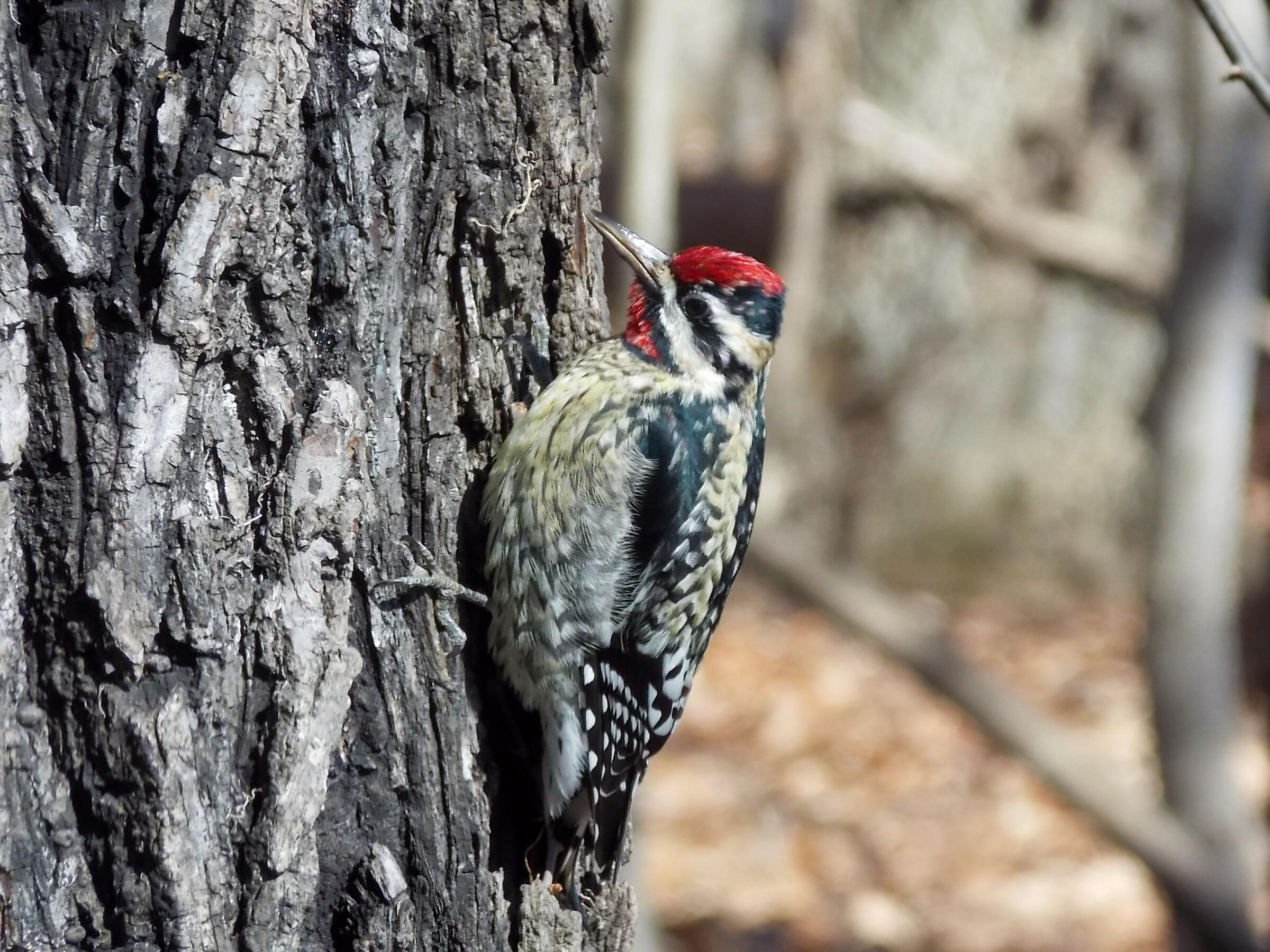Centennial Watershed State Forest, co-managed by CT DEEP, Aquarion Water Company, and The Nature Conservancy in Connecticut, has been recognized by Audubon’s Bird-Friendly Maple program for its management of a seven-acre sugarbush in the forest’s Means Brook Watershed Block in Monroe. Through the Bird-Friendly Maple program (a collaborative effort between Audubon, Cornell, the New York State Maple Producers Association, and the Maple Syrup Producers Association of Connecticut), they manage their sugarbush—the forest area where maple syrup is produced—in ways that provide more resilient bird habitat.
“Sugarbushes don’t just make for great maple syrup: As the production season winds down, they become nesting and foraging habitat for declining songbirds like the Scarlet Tanager and Wood Thrush. On a wider scale, healthy forested landscapes provide benefits like carbon sequestration and storage and watershed protection. By creating a more structurally and biologically diverse sugarbush, maple producers can play a vital role in conservation that benefits birds and people,” said Suzanne Treyger, Senior Forest Program Manager for Audubon Connecticut and New York.
As a recognized sugarbush, this area of the state forest is managed in ways that help these birds raise the next generation of their species.

What makes a bird-friendly sugarbush?
- Young trees and shrubs provide cover, food, and nesting sites for Black-throated Blue Warbler and Wood Thrush.
- Snags (dead trees) are left standing to provide nesting sites for woodpeckers and White-breasted Nuthatch, and insects for Scarlet Tanager.
- Downed trees and other woody material are left on the forest floor for birds like the Ovenbird and Ruffed Grouse to take cover, nest, and forage.
“We’re so pleased that this site in Centennial has been recognized for providing high-quality bird habitat in addition its contributions to maple syrup production. But it’s not just about this outcome –it’s also about a commitment to active forest management that results in a more resilient and productive forest over time,” says Cynthia Fowx, director of Saugatuck Preserves for TNC in CT.
Information about Centennial Watershed State Forest can be found here: https://portal.ct.gov/DEEP/State-Parks/Forests/Centennial-Watershed-State-Forest.
###
CONTACT
Sharon Bruce, sharon.bruce@audubon.org
About Audubon Connecticut
Audubon Connecticut, a state office of the National Audubon Society, protects birds and the places they need, today and tomorrow, throughout the Americas using science, advocacy, education and on-the-ground conservation. Audubon's state programs, nature centers, chapters and partners have an unparalleled wingspan that reaches millions of people each year to inform, inspire and unite diverse communities in conservation action. Since 1905, Audubon's vision has been a world in which people and wildlife thrive. Audubon is a nonprofit conservation organization. Learn more at ct.audubon.org and follow us on Facebook and Instagram.
About The Nature Conservancy in Connecticut
The Nature Conservancy is a global conservation organization dedicated to conserving the lands and waters on which all life depends. Guided by science, TNC creates innovative, on-the-ground solutions to our world’s toughest challenges so that nature and people can thrive together. Working in more than 70 countries and territories, TNC uses a collaborative approach that engages local communities, governments, the private sector, and other partners. The Connecticut chapter has protected more than 53,000 acres of land and is engaging with communities throughout the state to help build and conserve a more resilient, livable world. To learn more, visit: www.nature.org/CT



